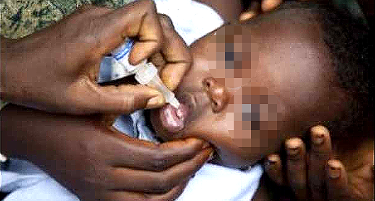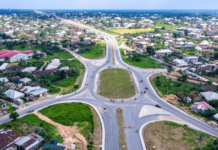Three years after Yobe State was declared free of Poliomyelitis, the disease has unfortunately resurfaced, with four new cases recorded across three local government areas: Bursari, Machina, and Yusufari. This development is a setback for the state, which had celebrated its polio-free status for years, only to face a new challenge with the emergence of a circulating poliovirus.
The Executive Secretary of the Yobe State Primary Healthcare Management Board, Dr. Babagana Kundi-Machina, shared this unfortunate news while launching this year’s polio vaccination campaign in Dole Machina, a community located just five kilometers from the Niger Republic border. Dole Machina has become a focal point in the state’s efforts to combat the virus, as it recently recorded two of the four new cases.
Dr. Kundi-Machina expressed his disappointment, noting that after three years of being certified polio-free, the state has witnessed a resurgence of the virus in three key areas. He emphasized that the state government, in collaboration with its partners, has immediately initiated a state-wide outbreak response aimed at containing the spread of the disease. He stated, “It’s unfortunate that after three years of being certified polio free, we have recorded a circulating poliovirus outbreak in 3 local government areas of Bursari, Machina, and Yusufari. As a government, together with our partners, we have embarked on a state-wide outbreak response.”
 To address this outbreak, the state has launched a mass vaccination exercise that will not only target the affected areas but will also cover all 17 local government areas in Yobe State. Dr. Kundi-Machina stressed the importance of widespread vaccination to ensure the virus does not spread beyond its current boundaries. He pointed out that the campaign was flagged off in Dole Machina, the epicenter of the outbreak, where two cases were recorded. This strategic approach underscores the state’s commitment to quickly containing the virus and preventing further infections.
To address this outbreak, the state has launched a mass vaccination exercise that will not only target the affected areas but will also cover all 17 local government areas in Yobe State. Dr. Kundi-Machina stressed the importance of widespread vaccination to ensure the virus does not spread beyond its current boundaries. He pointed out that the campaign was flagged off in Dole Machina, the epicenter of the outbreak, where two cases were recorded. This strategic approach underscores the state’s commitment to quickly containing the virus and preventing further infections.
The resurgence of polio in Yobe has prompted swift action from health authorities and development partners. Dr. Hamisu Alhassan, the State Coordinator of the World Health Organization (WHO), pledged support to the Yobe State government in its efforts to curb the outbreak. Speaking on behalf of international partners, Dr. Alhassan reassured the government and local communities of continued collaboration to prevent the spread of the virus. He also highlighted the importance of personal and environmental hygiene in preventing polio outbreaks, urging the communities to take proactive measures to protect themselves. “We are here to support Yobe State in preventing and controlling this outbreak. However, the communities must also do their part by maintaining good hygiene, which is critical in combating this disease,” Dr. Alhassan stated.
The Emir of Machina, Alhaji Bashir Albishir-Machinama, was also present at the flag-off ceremony and played a crucial role in mobilizing the local community to embrace the vaccination campaign. He urged his people not to be hesitant in accepting the vaccines, recalling past instances when vaccinations helped prevent outbreaks. He expressed gratitude to the government for its prompt response and vowed to continue raising awareness within his community to ensure full participation in the vaccination efforts. “I thank the government for its quick action in responding to this outbreak. I will ensure that my people understand the importance of this vaccination and participate fully to prevent the disease from spreading,” the Emir said.
The Yobe State government’s prompt response, coupled with support from partners like the WHO, reflects the urgency of the situation. Polio, a debilitating disease that mainly affects children, had been nearly eradicated in Nigeria thanks to years of sustained vaccination efforts. The re-emergence of cases in Yobe State serves as a reminder that vigilance and continued immunization are essential to preventing the spread of the virus.
Health experts stress that the success of vaccination campaigns hinges on public cooperation. With the state’s leadership, healthcare officials, and community figures like the Emir of Machina actively involved in this effort, there is hope that the outbreak can be quickly contained and the polio-free status can once again be restored. As the vaccination exercise unfolds across all local government areas in Yobe State, authorities are optimistic that their collective efforts will prevent further cases and protect vulnerable populations from the devastating effects of poliomyelitis.




